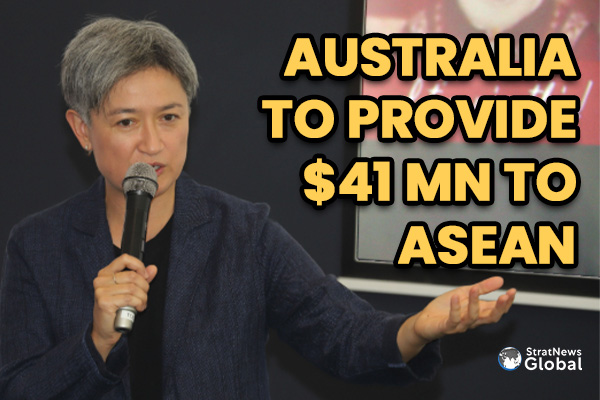Australia’s foreign minister Penny Wong has announced that her government would provide $41.8 million in maritime security to Association of Southeast Asian Nations (ASEAN) countries.
Wong added that the countries of this region are reliant on oceans, seas and rivers for livelihoods and commerce, including free and open sea lanes in the South China Sea and maritime security is really important for them.
The Australian government has not clarified which of the countries would be recipients of this funding.
China has been loggerheads with most countries in the region including Malaysia, the Philippines and Vietnam.
“What happens in the South China Sea, in the Taiwan Strait, in the Mekong subregion, across the Indo-Pacific, affects us all,” Wong said.
Wong was speaking at a special summit of Australia becoming a dialogue partner of ASEAN.
The ruling centre-left Labour party has over the years advocated for closer ties with other countries in the region.
Some of the countries in the region have expressed concern over Canberra investing billions of dollars in nuclear submarines with the United Kingdom and United States, which they say could spur a nuclear arms race in Southeast Asia and the wider Asia Pacific.
Meanwhile, in a speech to Australia’s parliament, Philippine President Ferdinand Marcos Jr was categoric about his country’s position on the South China Sea, amid growing tension with Beijing on competing claims.
“I will not allow any attempt by any foreign power to take even one square inch of our sovereign territory,” Marcos has said.
Over the past few months, the Philippines has reported multiple incidents with China in the region, where it accused Beijing of carrying out dangerous manoeuvres.
Marcos in a reference to China said that the challenge his country faces is formidable, but his country’s resolve to tackle it is also formidable.
Marcos Jr is the son of former Philippine hardline leader Ferdinand Marcos who was overthrown in a popular uprising in 1986 and fled into exile.
In a career spanning three decades and counting, Ramananda (Ram to his friends) has been the foreign editor of The Telegraph, Outlook Magazine and the New Indian Express. He helped set up rediff.com’s editorial operations in San Jose and New York, helmed sify.com, and was the founder editor of India.com.
His work has featured in national and international publications like the Al Jazeera Centre for Studies, Global Times and Ashahi Shimbun. But his one constant over all these years, he says, has been the attempt to understand rising India’s place in the world.
He can rustle up a mean salad, his oil-less pepper chicken is to die for, and all it takes is some beer and rhythm and blues to rock his soul.
Talk to him about foreign and strategic affairs, media, South Asia, China, and of course India.





